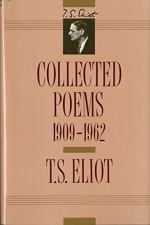|
This section contains 156 words (approx. 1 page at 400 words per page) |

|
Eliot does not situate the reader in a stable landscape, but in one the speaker describes as a “dry cellar” (10), a desert of cacti and statues, a “valley of dying stars” (54), and a river beach. These various settings are not physical places on earth but aspects of Limbo, the suspended part of the afterlife in which the speaker has found himself.
The speaker uses the metaphorical registers of each landscape to describe his destitution. The emptiness of the desert and valley reflect his own despair, as does the confinement of the cellar and the isolation of the river beach. Indeed, the “beach of the tumid river” (60) situates the hollow men at the edge of something they are unable to pass through, dramatizing that they are blocked, stuck, and immobile. This condition serves, too, for a metaphor for Eliot’s Europe, left psychologically desolate by the war and unable...
|
This section contains 156 words (approx. 1 page at 400 words per page) |

|




